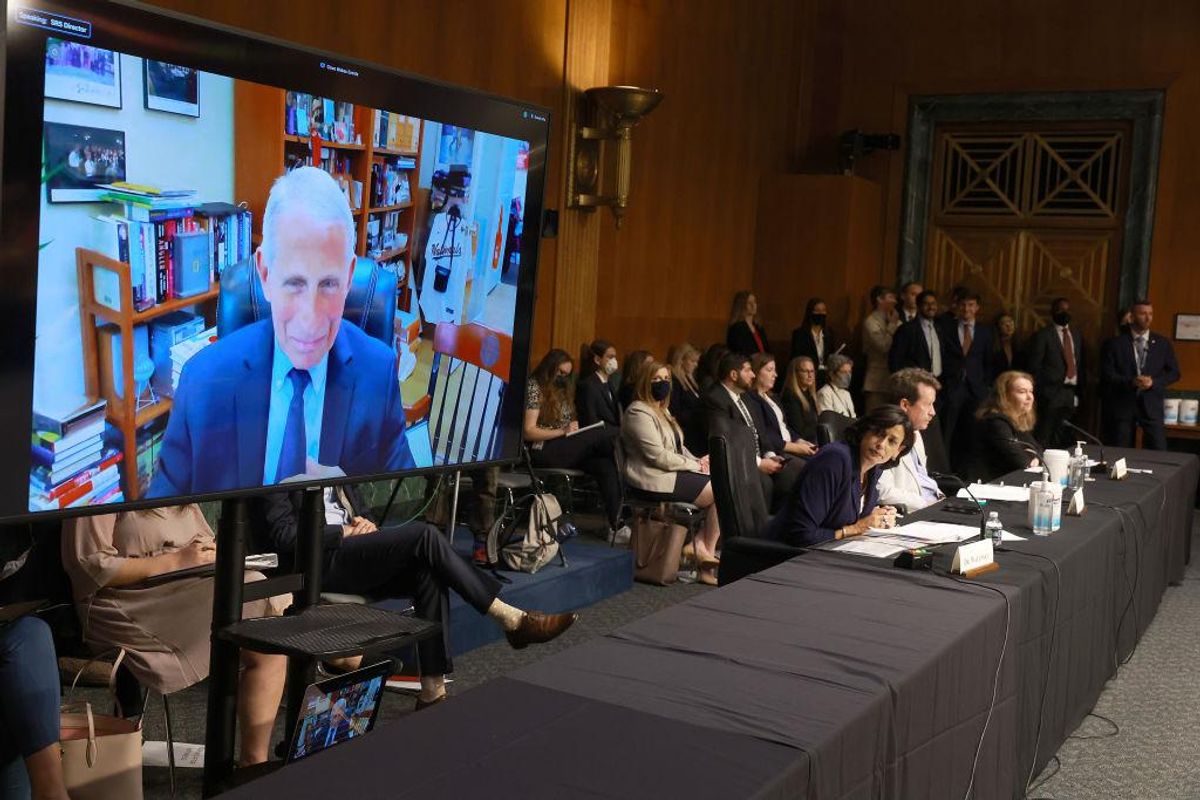Rand Paul challenges Fauci on evidence young people need COVID-19 boosters, and Fauci makes big admission

Sen. Rand Paul (R-Ky.) got White House chief medical adviser Dr. Anthony Fauci to admit there is a lack of data showing that COVID-19 booster shots lower the rates of hospitalization or death in children on Thursday.
Fauci made a virtual appearance before the Senate Health, Education, Labor, and Pensions Committee, where he gave an update to lawmakers on the Biden administration’s COVID-19 response. He did not appear in person because he tested positive for the coronavirus earlier this week.
During his question time, Paul noted that the administration recommends that everyone over age five get vaccinated against the coronavirus, including taking a booster shot. “Are you aware of any studies that show reduction in hospitalization or death for children who take a booster?” Paul asked.
“Right now, there’s not enough data that has been accumulated, Senator Paul, to indicate that that’s the case,” Fauci answered. He began to explain that the government’s recommendation is based on an “assumption” regarding the morbidity and mortality of children in different age groups, but Paul cut him off.
“So there are no studies. And Americans should all know this. There are no studies on children showing a reduction in hospitalization or death with taking a booster,” Paul said.
The Kentucky lawmaker, an optometrist by training, went on to state that the only research presented to the Biden administration were antibody studies, which he claimed were insufficient to prove the efficacy of booster shots for children. He suggested that a person who receives 10 booster shots of an mRNA vaccine may get antibodies from each shot, but said that does not mean they need 10 boosters.
This prompted pushback from Fauci, who called Paul’s example “somewhat of an absurd exaggeration.” But Paul asserted that is more or less how the government has supported its booster recommendations.
Acknowledging that “there is probably some indication” that boosters offer protection from hospitalization and death in older people with certain risk factors, Paul said there was no evidence that was the case for younger people. He went on to say that there is a risk of heart inflammation in young people associated with taking mRNA vaccines that, while rare, is concerning.
“The risk of myocarditis with a second dose for adolescent boys 12 to 24 is about 80 in 1 million,” Paul said, citing data from the U.S. Centers for Disease Control and Prevention.
“So there is risk and there are risks, and you’re telling everybody in America just blindly go out there because we made antibodies,’” Paul said.


